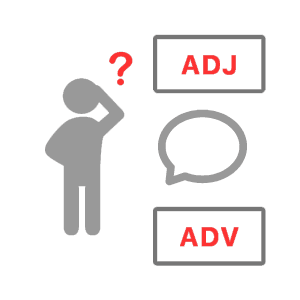

We have gone over Adjectives and Adverbs in our previous blogposts. So that may not be any difficulty anymore. Now, in specific we are coming to Commentary Adjectives and Adverbs.
Before you continue to read, we want you to know that the examples we are going to provide you proudly contain several kinds of presuppositions.. And combining all the techniques learnt will make it only more powerful than you could imagine.
Practice these examples and come up with your own. The more you practice, the more you become perfect in it. That is the goal we are aiming for.
It is soo much easier and simple to scan for the words you need to scan for in a sentence, some examples are provided for you here. Luckily you are reading this. Take this knowledge and expand it. Your competition could be too …
Now you do know how they are organized, let’s take a look at some practical examples.
We suggest that you reread the sentence above several times. With the knowledge of the Milton Model and Presuppositions you already have, how easly can you learn this new pattern?
Ok, as we received many requests to provide another example, here we go:
Stacking many kinds of presuppositions in the same sentence makes them particularly powerful. The more that is presupposed, the more difficult it is for the listener to unravel the sentence and question any one presupposition.
Some of the presupposition sentences listed above contain several kinds of presuppositions, and those sentences will be more powerful. The following sentence is an example of the use of many presuppositions stacked together.
“Naturally, as you start to realize the unlimited ways you can easily become aware of how using my advice will help you to truly accomplish your goals more rapidly and effectively as it relates to your projects, you’ll start imagining the success you can actually achieve with my help and guidance.”
We suggest you contact us with your best explaination of what happens in the sentence above. The winner will get an awesome prize!
Going the way we will publish more articles about Commentary Adjectives and Adverbs, Presuppositions and the Milton Model. Come back often as we tend to post frequently! Remember, to increase your efficiency as a NLP Practitioner, know your positive intention for the message you want to convey, build rapport and pay attention on what and how you use language. Leave people and business in a better place that where you found them, every day!
Put yourself to work and start making the NLP Meta Model part of your knowledge. The sooner you start, the sooner you benefit.
Mind Tools provides NLP Practitioner and NLP Master Practitioner Trainings and Certifications. We educate you according to the renowned, latest and highest standards set by the Society of NLP. We will train you thoroughly in all the corners of Neuro-Linguistic Programming and some extras we learned from Dr. Richard Bandler directly.
Our Licensed NLP Practitioner Training starts in:
On Checkout use the code NLP10PCTOFF and gain an extra 10% off our already discounted price.